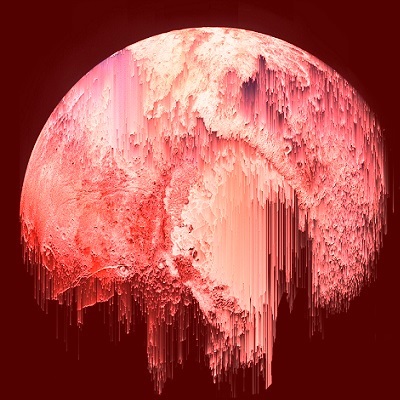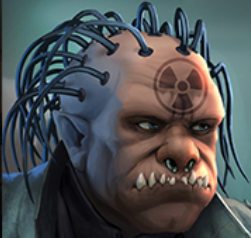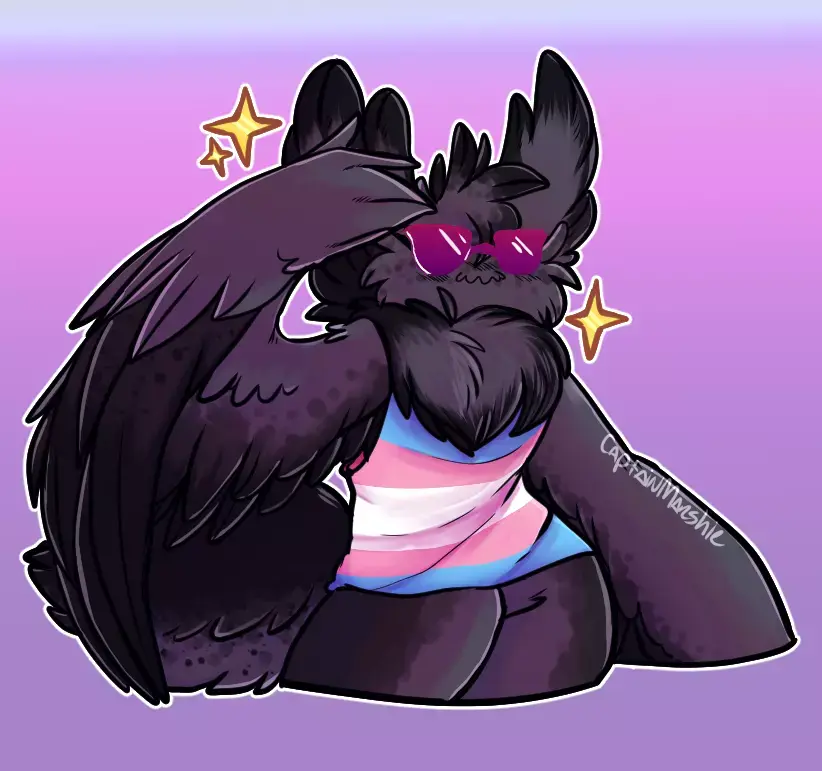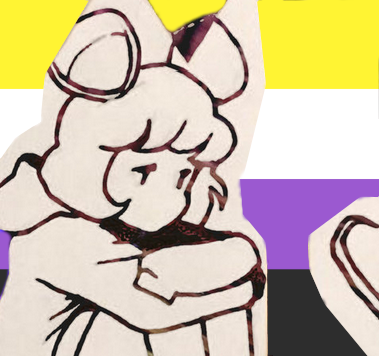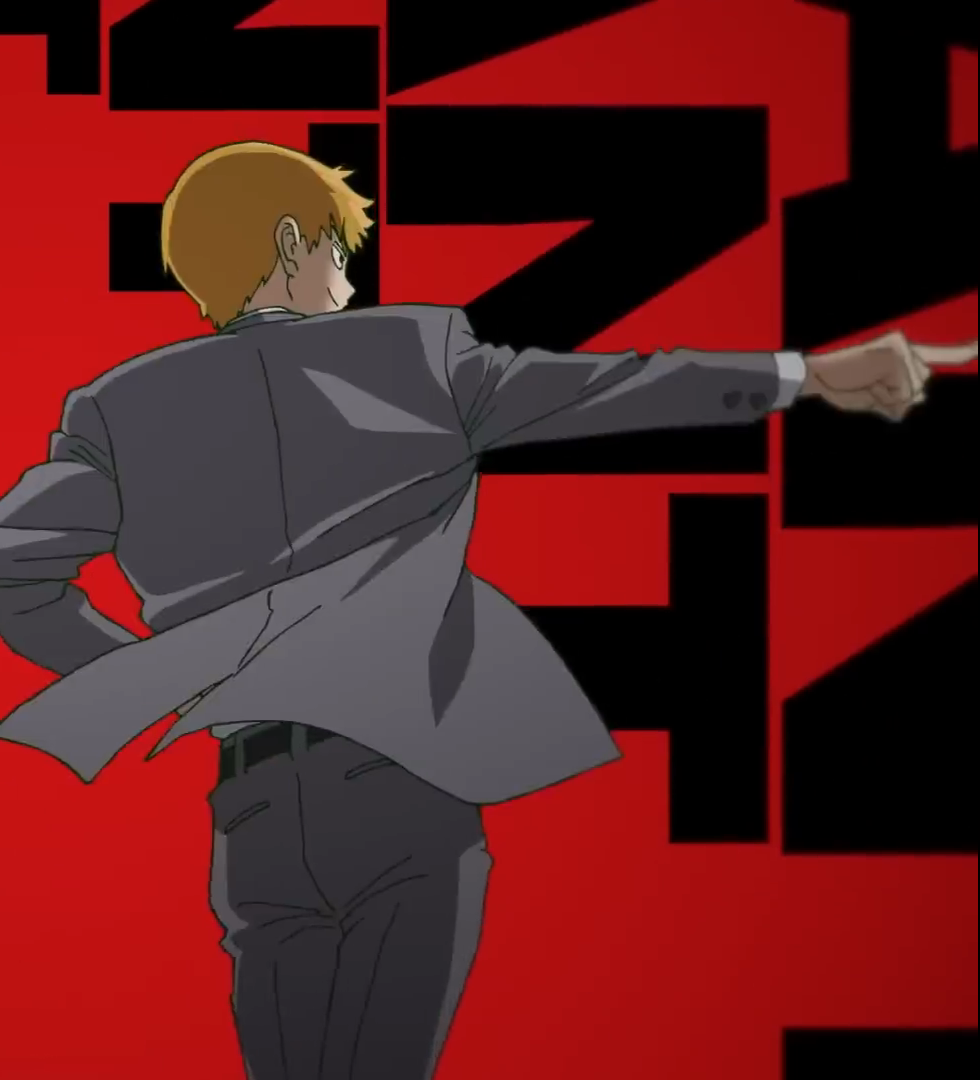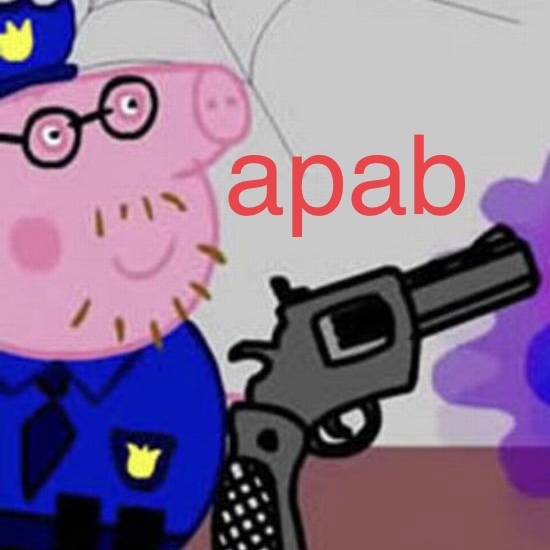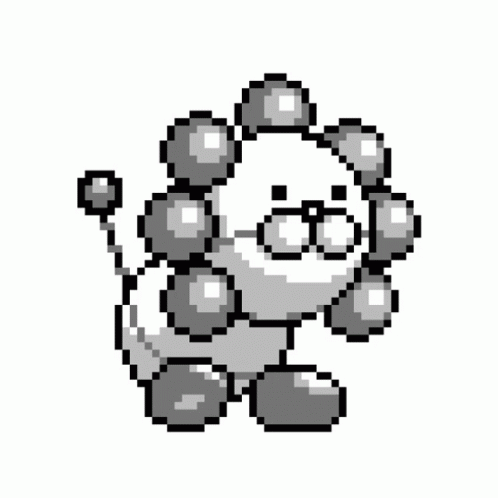The Will to Change: Men, Masculinity, and Love is a book by bell hooks about men, patriarchy, the relationship between them, and most importantly love. It's a book that I wish I had read much earlier, and so I decided to start a reading group. I'm a couple chapters in but will be re-reading (well, re-listening) to the chapters as we go through the book. This book is an empathetic look at masculinity, and focuses on learning how to love.
This idea was spawned by comrade @Othello@hexbear.net after I mentioned that I had been checking out the book and played the first chapter on Hextube. There is no need to pick up a copy, comrade Sen has already uploaded the entire audiobook onto Youtube. Content warnings are generously provided by Sen at the start of each chapter. Let's start with Chapter 1. Each chapter is only about 30 minutes long, so it's not a long commitment. I wanted to post this to c/menby but that didn't seem to work.
Uhh I don't know how to lead a reading group so let's start out with some questions:
-What stood out to you about this chapter?
-Are there any ideas that bell hooks introduces in this chapter that you've never heard of or wish you had heard earlier in your life?
-Are there any stories in this chapter that resonate with you on a personal level?
My son was born on Father's Day and this book was the gift my wife got me (aside from the baby, of course!) I read about half of it and found it excellent, so this is a great reason for me to go back and finish it.
Looking back on what I read, what stood out the most was the challenge of raising a child in a non patriarchal household within a patriarchal society. The anecdote about the feminist family whose son was unconcerned with gender roles untils a single instance of getting dirty looks from some older boys in the neighborhood completely altered his behavior really exemplifies what an uphill battle it is. It's extremely important to me that my son not feel restrained by gender expectations, and especially that he not find himself needing to commit the psychic violence that hooks correctly identifies as being the root of patriarchal reinforcement.
He's five months old now and I've had grandparents, great grandparents, aunts, uncles, and strangers all ask if he has a girlfriend yet. He doesn't even know what girls and boys are but they are building these expectations that he will see women as sexual partners and all the baggage around that. It makes me sick.
I feel fortunate that I live in a diverse and progressive neighborhood that will have less pressure than the situations discussed in TWTC at different places and earlier times. However, I'm still on guard basically all the time to be sure no one teaches him to be "a real man".
This is very difficult because of course you want to raise your child to be their authentic self, yet you don't want to set them up to be bullied in future. Balancing the world we want to live in, with the reality of the world as it currently is. It definitely seems like an uphill battle indeed. Though you just knowing about it, already makes you better than 99% of parents out there. I'm sure you'll do a wonderful job.
I have no idea what I'd do if I ever become a farther.
I can definitely relate to how my brother, as a little kid, used to be a big sweetie pie, and loved me to death as a baby. But just a little later on in our childhood, there was a sharp change. For the longest time we weren't even friends and didn't even talk to each other despite living in the same house. We have improved our bond over the years but it's sad how much he takes after our narcissistic father. I also really cling onto the hope that my father will change. I know for sure that there's good in my brother because I've seen it. Maybe I should give him this book to read lol, but he's got severe ADHD so I don't think he could sit down long enough to actually read it.
Also the part about sons acting exactly like their grandfathers really stuck out to me! My grandfather was an extreme alcoholic, and my father broke that cycle, or so he thought. My father never really had a problem with drinking. However my brother went on to have a severe problem with alcohol to the point of almost dying and possibly having brain damage. My father wasn't a physically violent drunk like my grandfather was, but the emotional void was still there and led again to the same trauma that likely caused my grandfather's issues.
I'm sorry to hear about your brother. Addiction fucking sucks, and the damage from alcohol abuse (personal and social) is absolutely terrifying considering how widely accepted and even expected it is to imbibe.
That said, there's a strong genetic component to substance abuse issues. And it's something that needs to be discussed and understood at home. My entire family has had issues with addiction at one point or another, and I've had to have a talk with one of my nieces about it. Her dad doesn't indulge at all, but that's not quite enough I think. Society in general needs to mature a lot more about having these kinds of conversations, and I wouldn't know where to even begin on this.
You talking about my pfp? The source of it is the same as yours, actually. It's an edited pic of Pluto.
It's a great read. I'd highly recommend it to just about anyone. It's one of those books that sticks with you in both a theory and personal sense. It's just really one of the best books on Men out there.
Listened to the first chapter. My first instinct is to lament how this book would've been important to me in college, but I've since grown up so now this is mostly stuff I already know. But then I remember I still struggle with asking for help or expressing my feelings. Seems like I've got some ways to go yet.
Hey, I read this earlier this year. I'll check in on this tomorrow and share some of my thoughts. Brain's too melted right now.
I forgot how much of this hit close to home when I was reading it the first time, and re-reading it brought me to tears again. The part about hungering for a father's love certainly holds true for me; he was never really there. Gone most of the day, emotionally unavailable, never evoking any emotion in me but fear, and screaming at the sports on TV and becoming deeply upset with me if I dared to ask for anything during that time. Not always, mind you, but still. I also definitely find myself longing for love and not really knowing how to go about expressing an interest in it or attracting anyone or even just getting enough affection from the people in my life already.
And all the talk of men not being allowed to express their emotions... I feel that, doubly so because of all the masking I do. My emotions are very strong and I've found people disapprove of how I express them, so I became more and more muted over time until I was mostly stoic and able to hold things back, but doing a better job of hiding my tears than my frustration. The part where Hooks expresses how she'd freak out when her ex talked about his feelings was poignant. I've heard women expressing contempt for men who cry; as someone who does a lot of crying, it affects me. She mentions men in feminist circles being labeled as narcissistic or needy, attention seekers, things I'm afraid to be labeled as well.
The notion of love being tied to performance hit me as well. I've always felt I don't measure up as a man, don't do any of the manly things well and can't attract anyone not due to my looks but rather my immense social clumsiness. I'm absolutely terrible with money and have poor impulse control. As I mentioned I cry a lot, I enjoy cute things more than I ever see most men expressing the sentiment, and I just kind of don't want to align myself with the traditional values of being a man in this society
 because they are largely built around dominating other people through violence, a notion I find abhorrent. As such, I feel I have no real way to prove my worth, and assume people look down on me as something lesser. Not a real man™, certainly not by the usual measures of sexual conquests or money or social status. I'm crippled by social anxiety and the social problems being AuDHD bring me.
because they are largely built around dominating other people through violence, a notion I find abhorrent. As such, I feel I have no real way to prove my worth, and assume people look down on me as something lesser. Not a real man™, certainly not by the usual measures of sexual conquests or money or social status. I'm crippled by social anxiety and the social problems being AuDHD bring me.There's also the bit about patriarchal thinking pervading society, even among women and children. I remember a time I was playing barbies with a female friend at age 7 or so, and when I got home my older brother was making fun of me, I said something to the effect of "If I see another barbie I'll throw it across the grand canyon" and the next time we met my friend still wanted to play, and I told her that, and I threw it when she gave it to me, and broke it. I think the friendship soured after that. It taught me that even my own family would harm me emotionally if I didn't conform properly, and I never felt like I conformed properly as a person or a man. So anger was met with scorn, but not derision. Crying? Sensitivity? People get weird. As such I feel it's made me have an aggressive affect that keeps people away that I cultivated to deal with bullies growing up, and I don't like that this seems to scare people. A man who scares women isn't going to have a lot of luck dating. I also can't stand the notion of anyone being scared of me due to the RSD. So that hurts. I'm not a violent person (unless you count thoughts about myself) and I long to be a source of safety and comfort to someone, not a source of anxiety and fear.
Most of all "something missing within" is definitely something I feel. I try my best to be nice to people, to work hard, to present myself as someone who's not dying inside of loneliness, but I feel hollow. I don't think finding a partner would heal me; on the contrary, I'm made to feel that if I don't heal first, or at least suck it up like a man, I'll never find anyone, because I don't deserve one then. The widespread sentiment that "everyone is worthy of love" runs smack into the face of the criteria people use to choose friends and lovers, and proscribe behaviors that make it more difficult for queer and neurodivergent folk to properly integrate.
I feel like the social conditioning men go through makes us less able to feel and perceive love, not just express it. For me, surely my depression and muted positive emotions are partially to blame, but I feel it's more than that. We're driven into emotional deadness to make us better at powering through pain to make money, or crack the whip without remorse if we make it into the higher tiers of the social hierarchy. We come across genuine love and have no idea what to do with it, or even know what it is.
This book was something I needed to read when I read it. It's powerful stuff. It treats men not as the enemy but fellow victims of patriarchy, and it's true. I've always felt alone and I'm not sure how to fix it, but at least there's a book out there that articulates this pain. I think re-reading it will be just as helpful.
The part where Hooks expresses how she'd freak out when her ex talked about his feelings was poignant. I've heard women expressing contempt for men who cry
Several of my friends and I have all remarked that we've had girlfriends who clearly lost respect for us when we shared a little bit of our vulnerability with them. It was a very clear marker in those relationships, and the breakup always came soon after. My friends are very hesitant now to express their emotions to their significant others because they're afraid that they will then perceive them as weak.
I understand that many men have a tendency to dump all of their pent up emotions on to their partner because she's the only "safe" person in their lives to do that with, which can be overwhelming, but this was not the case for me and my friends. It was sometimes something as simple as "I'm very stressed and worried about work" which was a kind of signal to women that we were failing as men to be manly enough about whatever hardship we were meant to bottle up.
It is difficult to try and break the social conditioning you mentioned, only to have our loved ones quickly reinforce it for us.
I can relate with a lot of what you said. I'm sorry about what you had to go through and hope you can find some comfort knowing that a lot of us share your feelings and experiences. I think it's also really tragic that a lot of men don't even realize why they're so frustrated and struggle with their emotions.
I think I'm really lucky to have a male friend who grew up at least somewhat isolated from what you described. I always thought he was a little weird when we were younger but now I am really just in awe at how easily he can express himself to others without fear of what they think of him.
Thanks for the kind words. It's always weird to me when people on the internet express concern for me. See other post about being unable to perceive or know how to react to love properly lol
@Pluto@hexbear.net could we get this pinned? Also I consider this theory so @CARCOSA@hexbear.net if it's not too much maybe you would consider featuring this?
Sorry, I wasn't here 13 hours ago.
My apologies. I guess it's pinned now though so no harm.
This thread came up at the perfect time, I am just about to finish reading 'Men Who Hate Women', looking at the same themes from the perspective of how men hate, rather than why men lose the ability to love.
The first chapter of 'The Will to Change' was a good introduction to the topics the book will cover. Some quotes from the first chapter that resonated with me:
-
"he was fundamentally uncomfortable being asked to talk about emotions"
-
"the grief men feel about the failure of love goes unnoticed in our society, precisely because the patriarchal culture in our society does not care if men are happy"
-
"he continues to grapple with the issue of whether he will define himself, or allow himself to be defined by patriarchal standards"
-
"again and again, a man would tell me about early childhood: feelings of emotional exuberance, of unrepressed joy, of feeling connected to life and to other people, and then a rupture happened, a disconnect; and that feeling of being loved, of being embraced, was gone. Somehow, a test of manhood, men told me, was the willingness to accept this loss, to not speak it, even in private grief"
Looking forward to the next chapters and discussions.
-
I finished the book last night and I think I agree broadly with your views, and likewise I didn't find any great revelation, just reframing and perspective from people with different life experience to me.
But whatever is wrong with me is not fundamentally about the harm done to me by patriarchy.
This reminds me of the section in the book where hooks recounts talking about 'patriarchal imperialist capitalism' during a lecture, the whole box and dice, and the audience laughs. The charitable interpretation of the audience's reaction is it's almost too much to tackle at once so what can you do but laugh.
There's a lot more to it and the examples she cites of feminist men who end up reproducing patriarchal violence and domination after taking on jobs with higher status does go some way to suggesting that it's capitalism's instrumentalisation of patriarchy that makes it so insidious, but capitalism is the eclipsing problem here.
Just finished the first chapter (audio, thanks for linking) it sounds familiar, I'm not sure if I've read it before. In any case, definitely worth revisiting.
What stood out to me was the supplanting of male love with anger. Which got me thinking how men are then taught to love that anger. I'm not sure if hooks addresses this again later in the book, so will withold my thoughts on that til I've pushed further ahead.
I wish I got anything out of her work but I read All About Love and this one and, nope.
I'm planning on having Ch. 1 up for several more days, and I'm waiting until after Thanksgiving to post my thoughts
I found a YouTube link in your post. Here are links to the same video on alternative frontends that protect your privacy:
Ok I'm finally re-listening to this chapter and will be posting my thoughts. @Othello@hexbear.net you said you would do it too so let's do it.
One last thought: I feel like I've spent most of my critiques here shitting on 2010s pop feminism, so let's do a little shitting on Andrew Tate types. One revelation that was already in the back of my head that I was finally able to voice is that Andrew Tate and his ilk also hate men. They hate women, of course, and they are evil for it, but they also despise men and their own fanbase. These guys are constantly telling their fans that they are "beta males" and other such lies. The entire patriarchal reaction to feminism has basically just been to hate men all the more, for not living up to patriarchal standards. The patriarchy has always been like this, but Andrew Tate and his slimy ilk have amplified these trends in recent years as a backlash to feminism. How many times have you seen ads directed at men about how they aren't good enough?
These guys are constantly telling their fans that they are "beta males" and other such lies
Nothing tells us more about the "hierarchies are natural" crowd more than the amount of effort they put in to creating artificial hierarchies where they're on the top and everybody else is below them.
The other part of this chapter that stuck out to me was this idea of a "fetish" of a strong, cold, unfeeling man, and crucially, that this is desired by some women in a patriarchal culture. I use the word fetish here because it is similar I feel to racial fetishes or other unhealthy stereotypes that bring out desire for the image of a person but distaste for the person inside. It's the answer to the eternal question of why women "go after assholes". That question is rather sexist in itself, but the reality is that a fetish is built up within society by the patriarchal culture that glorifies this lifestyle, and people's brains are molded with that fetish. I don't know if "fetish" is the right term here, kinky sex is mostly fine, but it was the word that came to me first.
"The reality is that men are hurting and the whole culture responds to them by saying, 'Please do not tell us how you really feel'".
This stuck out to me more than perhaps anything else in the chapter. The online culture war over feminism sparked ugly, ugly trends, things like "I hate men" becoming popular on Twitter and "male tears" mugs. So often I've felt like I just have to accept that type of "feminism" but maybe I don't. Maybe I'm right to not just be angry, but also to be sad at how hurting men became part of online culture.
Fear prevents us from love, bell says, and fear of men prevents love, and that fear often presents itself as hatred. See my other comment about the nastiness of early 2010s pop feminism.
"The truth we do not tell is that men are longing for love"
That hits close to home for me.
Basically every word in this chapter hits. I can't just quote the entire book at you all but I thought I would mention that.
Comrade Sen
 Comrade Parenti: the eternal battle with the microphone
Comrade Parenti: the eternal battle with the microphoneYou can always cry together.
It's interesting how our separate takeaways say a lot about the course of our lives. I'm a lonely, single man and my time growing up during the 2010s influenced me heavily and thus all of those parts of the book stuck out to me more. Here, have a hug:

I do wish there was more in this book about the non-binary and trans experience with love. It is probably mostly due to the time the book was published, but I do wish there was a section on that.
One idea that shocked me when I first heard it, so much that I was scared to even say it on here, was the idea that women also uphold patriarchy. How I wish this had been told to me in earlier classes on feminism!
"Our love helps, but is not enough" is such a compassionate and realistic approach to tackling patriarchy. Boys and men must also save themselves, but it is not done alone, nor is it done without the love of women.
How is initiating the divorce an indictment of women's victimhood?



